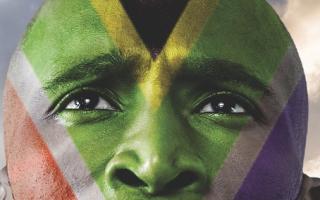The Bill of Rights is contained in the Constitution of the Republic of South Africa (“Constitution”) and protects a person’s basic human rights (such as the rights to equality, human dignity, life and so on). Human rights are based on the values of society and must be carefully balanced to ensure that, although persons can exercise their human rights, they also have a responsibility to respect the human rights of others.
South Africa is a diverse country with individuals having their own opinions, following different religions and expressing themselves in different ways. While all human rights are important, this article aims to highlight five human rights that can be linked to each other through dealing with a person’s beliefs and opinions.
Section 15 of the Constitution provides everyone with the right to freedom of conscience, religion, thought, belief and opinion. For example, a person has the right to belief in something (such as a deity) and to express it publicly (such as to go to church). A person also has the right to believe whatever s/he wants and to apply his/her own moral thoughts when giving an opinion on something. This right is important to South Africans as it allows people to think, express and act upon their individual beliefs, while respecting the beliefs of others.
Section 16 of the Constitution protects the right to freedom of expression. This is not just limited to freedom of speech, but also refers to the expression of an emotion or belief. For example, wearing certain items of clothing, dancing, painting and so on. However, the rights of other persons must be taken into account. By exercising the right to freedom of expression, a person may say something that humiliates another and violates that person’s right to human dignity.
The right to freedom of expression is limited to an extent that expressions cannot be in respect of propaganda for war, provocation of imminent violence, or hate speech based on race, ethnicity, gender or religion that incites the causing of harm. Once again, these limitations illustrate a balance between a personal freedom and a responsibility to respect the human rights of others.
Section 18 of the Constitution protects the right to freedom of association, which means that a person has the right to associate him/herself with anyone. For example, a person can freely choose where to work, which businesses to make use of, which religious gathering to attend and so on. This right also allows a person to be part of any trade union, political party, club or association. In as much as this right protects the right to associate, it also means that an individual cannot be forced to associate with someone or an entity that s/he does not ant to be associated with.
Section 17 of the Constitution protects the right to assemble, demonstrate, picket and to present petitions. This includes gatherings of persons in a public place, such as in front of a building or in the streets, in order to raise their opinions and awareness about a certain cause. For example, to march from one place to another or to sit in a specific place and to refuse to move. However, these gatherings must be done peacefully and unarmed, and there are strict requirements for these gatherings to be lawful. This right is linked to the right to freedom of expression and the freedom of association as it allows an individual to express their opinions and beliefs, while respecting those of others.
Section 14 of the Constitution protects the right to privacy, which together with the other human rights, illustrate a delicate balance aimed at creating a culture of respect between South Africans. The right to privacy includes that no one is allowed to search a person’s home or property without following the correct legal procedures (for example, to obtain a search warrant). There are several supporting pieces of legislation aimed at protecting personal privacy of South Africans such as the Protection of Personal Information Act 4 of 2013 (which deals with the protection of a person's personal data, such as identity numbers, contact details, personal opinions and views and so on) and the Regulation of Interception of Communications and Provision of Communication-Related Information Act 70 of 2002 (which deals with the interception of communications).
In light of the above, it is clear that a person’s beliefs and opinions are protected. However, human rights can be limited in certain instances must be exercised in consideration of others and their human rights. South Africans are encouraged to embrace and celebrate their human rights, while respecting the human rights of their fellow South Africans.
